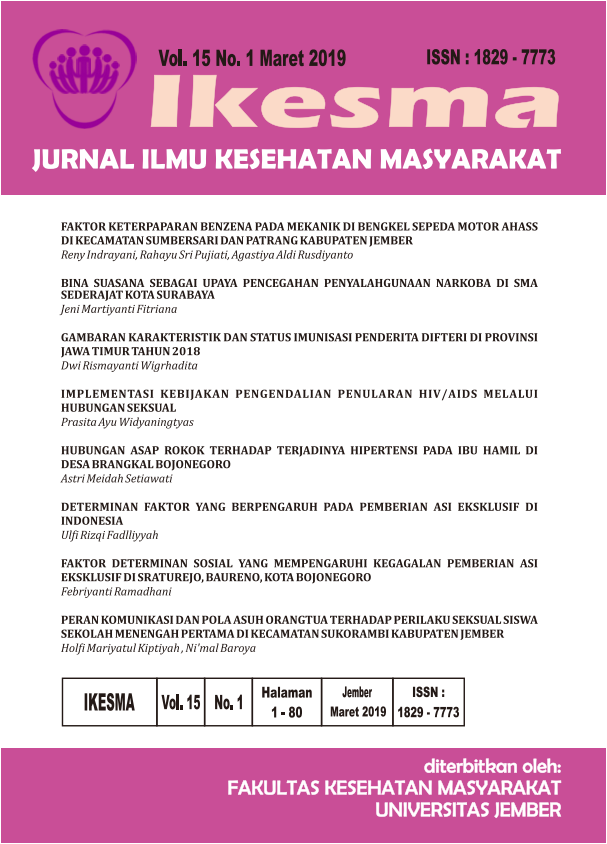DETERMINAN FAKTOR YANG BERPENGARUH PADA PEMBERIAN ASI EKSKLUSIF DI INDONESIA
DOI:
https://doi.org/10.19184/ikesma.v15i1.14415Abstract
Exclusive breastfeeding is one of the efforts to reduce the prevalence of infant mortality in Indonesia. If more babies get exclusive breastfeeding, it can improve the quality of baby's health. Breast milk also helps to build the baby's immune system, and giving exclusive breastfeeding during pregnancy to babies can help reduce fat. Indonesia is one of the countries that provides exclusive breast milk, hasn't reached the WHO target. Exclusive breastfeeding in Indonesia is related to several things, such as maternal factors, career woman, cultural factors, and impact formula milk campaign. Giving breast milk which is not done exclusively can increase the risk of stunting, because it easily involves infections and diarrhea. From birth to six months, every baby should get exclusive breastfeeding. However, the implementation of exclusive breastfeeding was not as expected. There are several factors in the practice of exclusive breastfeeding. This article discusses several factors which can affect exclusive breastfeeding. Obtained from the analysis of several review articles or literature, there are 16 factors that can affect exclusive breastfeeding, such as; maternal parity, work cycle, mother's knowledge, mother's attitude, mother's actions, family or husband support, education level, early breastfeeding initiative, maternal age, health worker support, availability of space lactation in the workplace, information exposure, family income, community environment, formula milk, and the psychological condition of the mother it self.



